These lesser-known Bavaria towns are even better than Munich
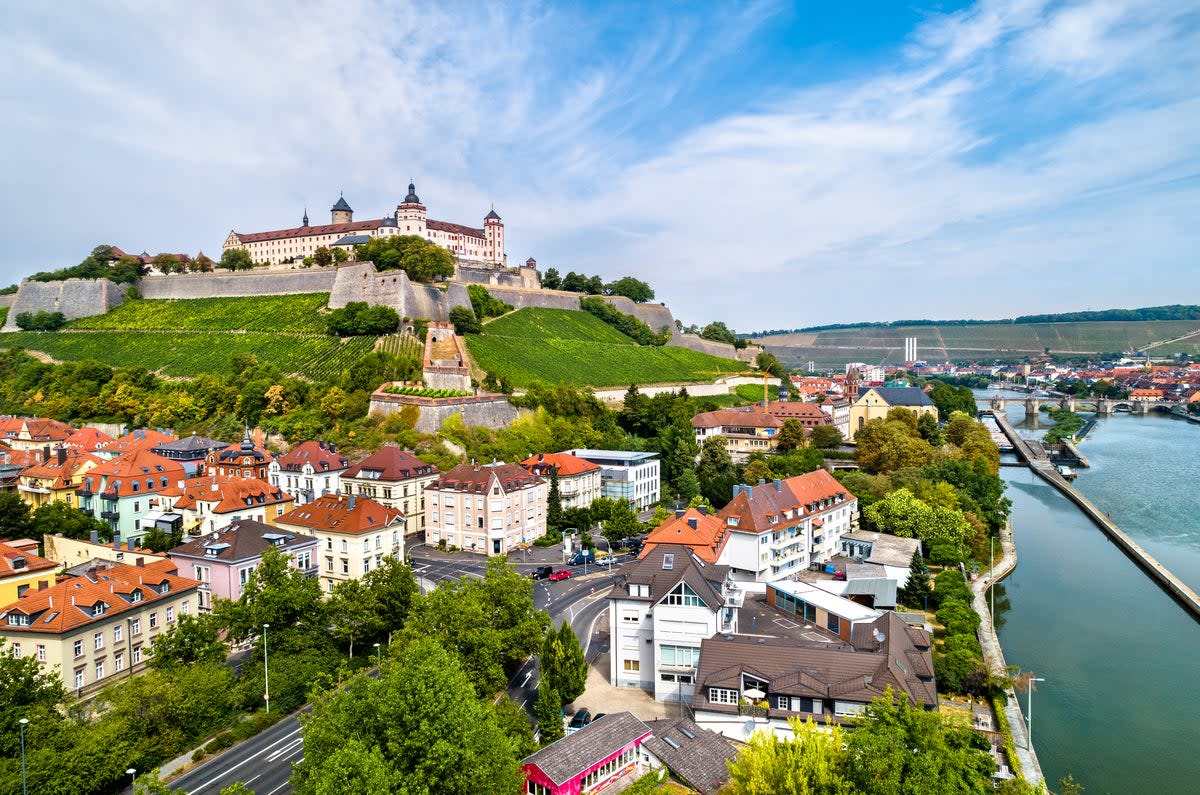
Most trips to Bavaria start in Munich – and rightly so. The culturally rich city is easy to reach by train or plane, and has traditions known around the world. However, Germany’s southern state is also home to a number of other fantastic cities. Smaller and quieter, they vary significantly according to their historical roots, geographical surroundings and neighbouring influences, but all make a great addition to a holiday itinerary.
Remain in Oberbayern (Upper Bavaria), the region surrounding Munich, for a continuation of the same theme: maypoles, blue-and-white flags and beer served by the litre. Venture just beyond the boundaries and you’ll discover laid-back Augsburg and medieval Regensburg. Then, for something completely different, head north to the region of Franconia. Here popular cliches are replaced by a distinct cuisine, local wines, different flags and people who are fiercely Franconian, rather than Bavarian. Here are some suggestions of places to try.
Rosenheim
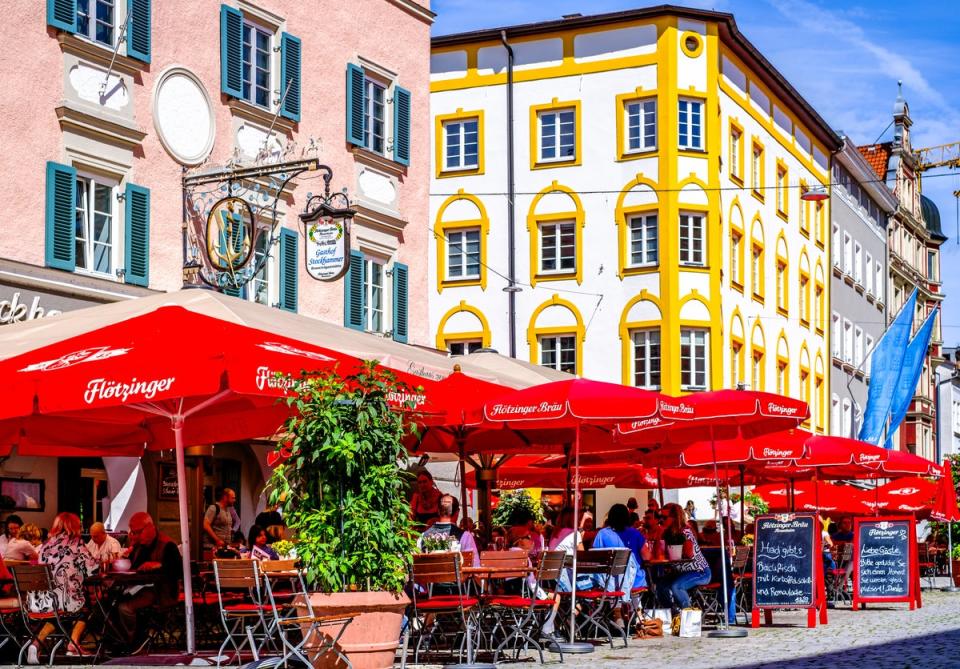
Found about half-way between Munich and Salzburg, the humble student city of Rosenheim is centred around a pedestrianised market square with grand town houses and fine arcades. There are modern cafes and restaurants here, as well as Bavarian pubs serving beer from nearby breweries. The cultural stand-out is the Lokschuppen, a former locomotive depot which now hosts a series of changing exhibitions. Thanks to its location, Rosenheim also makes a good base for exploring the nearby Alps and surrounding countryside, starting with Bavaria’s biggest lake, Chiemsee.
Read more on Germany travel:
Augsburg
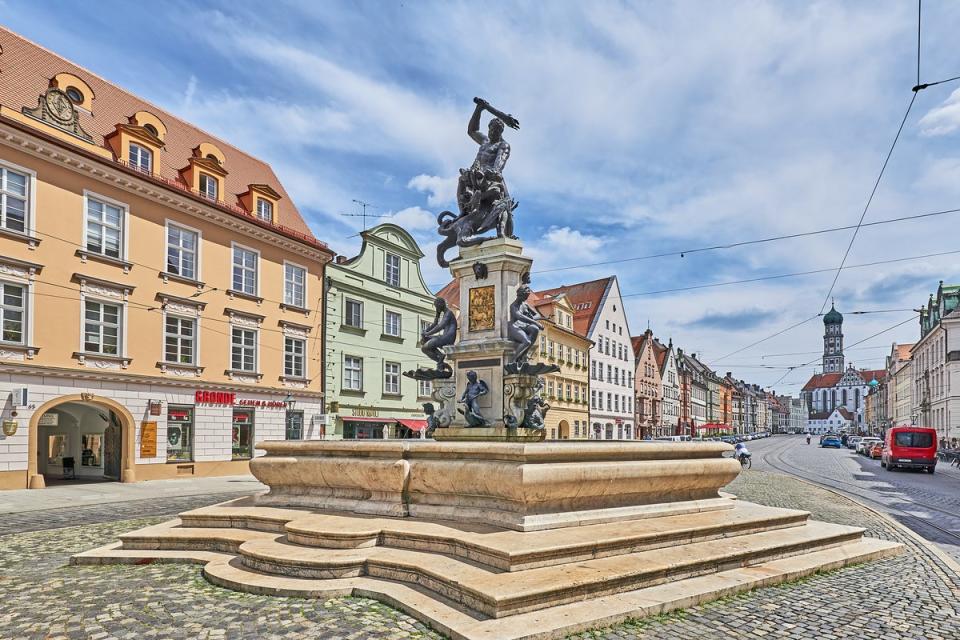
Founded in 15BC on the orders of Roman Emperor Augustus, this attractive city is one of the oldest in the country. Top sights include the double-towered town hall and the 70-metre tower (Perlachturm) in the main square, along with the ivy-covered buildings in the Fuggerei, a social housing complex which dates back to 1521. Still in use today, with the rent fixed for over five centuries, the Fuggerei is open to the public and has a museum in one of the houses showing how residents used to live. Next door, restaurant Die Tafeldecker has tapas-style dishes inspired by Bavarian and Swabian cuisine.
Regensburg
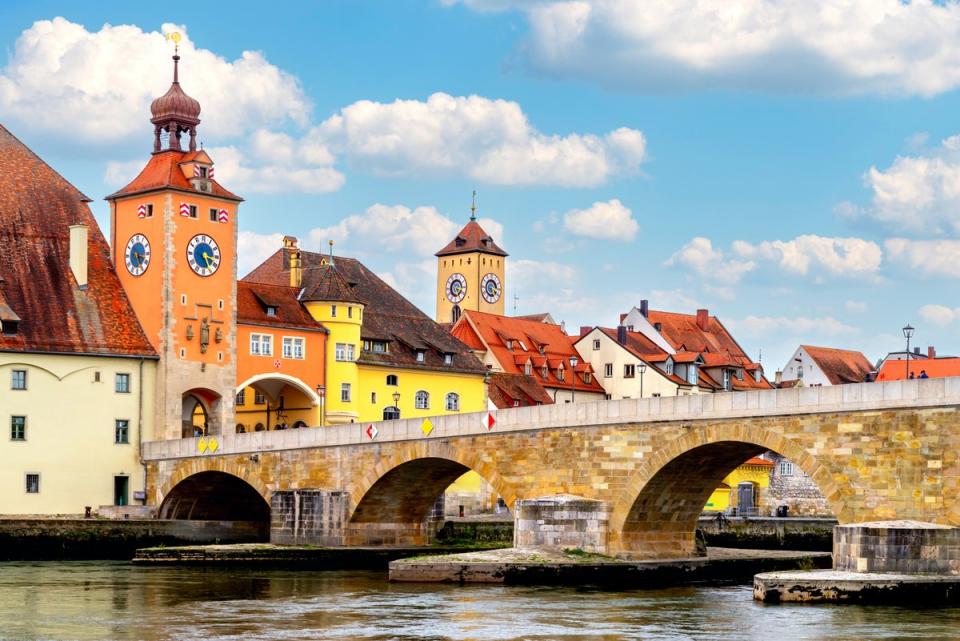
This city on the banks of the Danube is said to be one of the best-preserved in Germany, left almost unscathed during the war. Explore the maze of medieval streets, visit the skyline-dominating cathedral and don’t miss the Porta Praetoria, one of just two remaining Roman gates north of the Alps. Crossing the river is an impressive stone bridge, construction of which began in 1135, that connects the old town to the village-like Stadtamhof district. Collectively, these parts of town are recognised as a Unesco World Heritage site.
Nuremberg
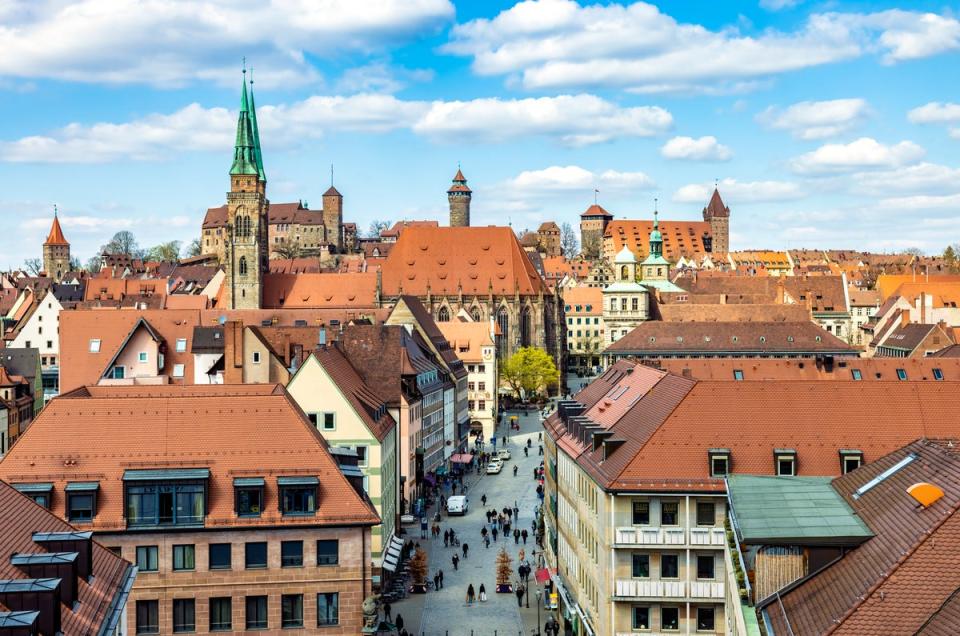
Nuremberg is the unofficial capital of Franconia, and Bavaria’s second biggest city. Here a castle sits atop a sandstone rock and overlooks the half-timbered buildings in the old town (both extensively rebuilt after the war), while reminders of Nazi history can be found at the former rally grounds or the information centre in the courtroom where the war crimes trials were held. Other notable museums include the Albrecht Durer Haus and the German Railway Museum. When it comes to food, start with the Nürnberger Rostbratwurste (sausages), available in sandwich form from street vendors, or served fresh from a wood-fired grill in one of the city’s smoky sausage houses.
Würzburg
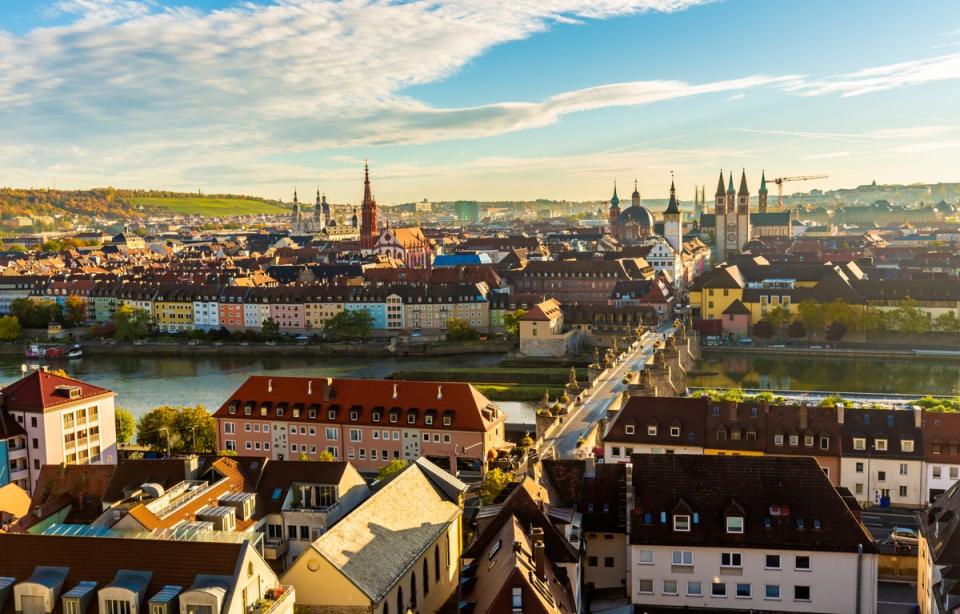
For more Franconian hospitality, head to beautifully Baroque Würzburg on the river Main. The first stop on the Romantic Road, a popular scenic byway through southern Germany, this city is surrounded by vineyards growing varieties such as Silvaner and Bacchus. Despite being an historic place, it retains a young vibe thanks in part to its student population. Spend a day exploring sites such as the splendid Unesco-listed Residence and the Marienberg Fortress, before heading to one of the city’s bars to try delicate white wines. Better still, time your visit to coincide with a vino-focused festival.
Read more on under-the-radar destinations to visit in Europe


